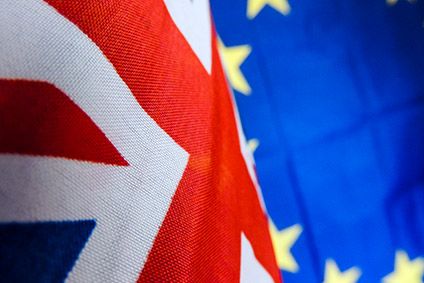
The UK government is to submit proposals today to Brussels for new arrangements over the UK’s withdrawal from the EU trade bloc on October 31st. They are being described as a ‘final’ offer by UK government sources, but there is thought to be a willingness to negotiate on the UK side. Time, however, is short, with a meeting of EU ministers – which could potentially agree a new Brexit withdrawal agreement or ‘deal’ on the EU side – scheduled for October 11th. Any new withdrawal agreement also has to be ratified by the UK’s lawmakers and that has proved problematic so far (see below).
The latest move in the tense negotiations between London and Brussels comes as Nissan has warned that the competitive position and continued long-term operation of its Sunderland car manufacturing plant would be threatened by a ‘no-deal’ Brexit that introduced new tariffs and costs. In particular, the scenario in which shipments from Sunderland of finished vehicles to EU markets attracted a 10% duty would endanger the plant’s future.

Discover B2B Marketing That Performs
Combine business intelligence and editorial excellence to reach engaged professionals across 36 leading media platforms.
The Financial Times newspaper quoted three people with knowledge of the matter as saying that the decision to build the next Qashqai in Britain had been contingent on a ‘soft’ Brexit that included a smooth transition and a negotiated free trade deal with the avoidance of new tariffs. That, the FT reported, is a decision that sources said it would reassess if Britain leaves the EU without a deal.
Nissan pledged in November 2016 to build the SUV in the UK, safeguarding thousands of jobs, after its then chairman Carlos Ghosn received assurances from the government that its operations would be protected from the impact of Brexit. However, Ghosn is now gone and Nissan is in a state of flux, operations across the world being reviewed to boost its profitability.
Nissan told the FT: “Frictionless trade has enabled the growth that has seen our Sunderland plant become the biggest factory in the history of the UK car industry, exporting more than half of its production to the EU. We urge UK and EU negotiators to work collaboratively towards an orderly balanced Brexit that will continue to encourage mutually beneficial trade.”
UK political situation remains volatile and uncertain
In Britain, the government led by prime minister Boris Johnson is claiming that the UK will leave the EU on October 31st, deal or no-deal. However, the government is in a weak position in the House of Commons – it now has fewer MPs than the combined opposition and most MPs are opposed to a no-deal Brexit because of the associated economic risks, particularly short-term (as typified by Nissan’s concerns and the general case put forward by the UK and European auto industry’s representative bodies). Another general election is a possibility, which could upset political calculations again.
Meanwhile, Brussels has an agreement that 27 member states have signed up to with previous prime minister Mrs May’s government – but it was not ratified by UK lawmakers and Boris Johnson is aiming for a new compromise while keeping the ‘threat’ of leaving with no-deal on the table.
One seemingly intractable problem is the land border between the Irish Republic and Northern Ireland – which after Brexit becomes an EU customs area border. Keeping all of the UK in the same customs area is an objective of the UK government, but that implies new customs checks on freight traffic across the border if Northern Ireland is outside of the EU’s customs area. A ‘backstop’ clause in the withdrawal agreement negotiated with Mrs May’s government said that if there is no technical solution to that problem, then the whole of the UK would stay in the EU customs area temporarily (but with no time limit specified). This, some argued, could leave the UK in the EU customs area indefinitely and unable to strike new trade deals around the world. The combination of opposition from so-called hard-line ‘Brexiteers’ in the governing Conservative Party and those whose sympathies lay with the UK staying in the EU (or at least a softer Brexit) meant that Mrs May’s agreement could not get a majority of UK lawmakers to vote for it. She eventually resigned and Boris Johnson took over as prime minister in the summer.
Under the latest proposals from the UK government, limited customs checks would be applied in Northern Ireland (although Northern Ireland would stay aligned with EU standards in some areas, such as agriculture and food, to reduce required cross-border checks). This is opposed by Dublin, the Irish government seeking to maintain the status quo and free and frictionless movement across the Ireland/NI border – for both people and goods. There is also an added sensitivity in any added state-based infrastructure that could reignite political tensions on the island of Ireland that culminated in the terrorism known as ‘the troubles’.
EU leaders have also consistently stressed the importance of maintaining the integrity of the EU’s single market in any future trade arrangements with the UK.






